Interview with Greg du Toit - not your average Wildlife Photographer!
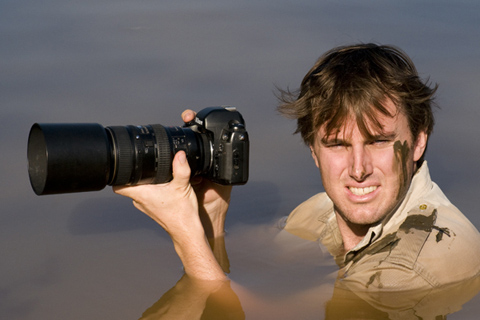
1. Hi Greg, what motivated you to become a wildlife photographer?
My love and passion for the African bush did. From a young age I was drawn inexplicably to the bush. As soon as I left school I went to live and work in the bush (and for no pay I might add).
My photography became an extension of this passion and a way to contain and share it.
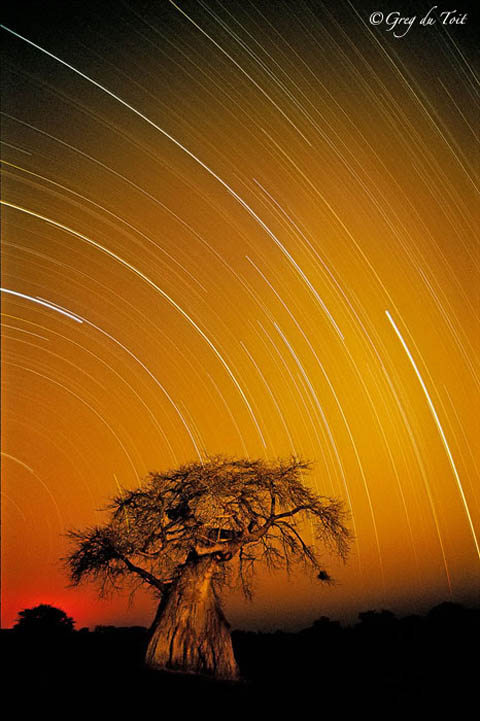
2. When you started out you bought a Nikon camera plus lens and you thought that was all you needed to be a professional wildlife photographer. You obviously don't subscribe to that thought anymore so tell us, what is needed in addition to the right equipment, to become a professional wildlife photographer?
Great question Mario. What is needed is a culmination of many different factors.
The equipment is a big financial and ongoing hurdle. The next hurdle is in getting to the right locations! This costs both time and money which in turn becomes a lifestyle issue. By this I mean, that a professional photographer, needs to set up a lifestyle that allows him to regularly access wildlife areas.
This then leads to family complications and a wildlife photographer needs a very understanding partner; thankfully my wife understands and tolerates my lifestyle with grace and composure. Then once you have all these lifestyle issues sorted out, you then need a creative and decisive eye (can’t buy that one).
You also need to achieve proficiency, both in-camera and on the computer. I also feel that bush skills and knowledge of animal behavior are both key and highly underrated skills. Once all this is sorted, you then need immense good fortune to be in the right place at the right time. You could say that becoming a wildlife photographer is almost a ‘comedy of errors’!
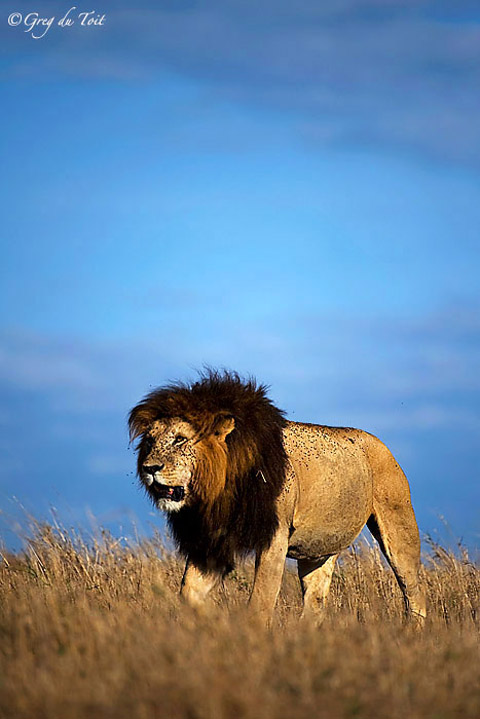
3. We hear about the Five-P's that together make a successful photographer - Purpose, Patience, Practice, Preparation and Passion. After you bought your first camera and lens you realized that you needed film and filters but you had no more money so you sold your motor vehicle to buy these items! Would you consider that a combination of passion and purpose?
I certainly would. I have been very fortunate in that my passion for, and sense of purpose, in photographing has been overwhelmingly great. I say that I have been fortunate, because I have never had to sit down and think about whether or not this is something I want to or should do or what the consequences will be?
I have just followed my heart and followed what I believe is my calling and damn the consequences ha-ha! The real miracle has been in finding a wife that understands!
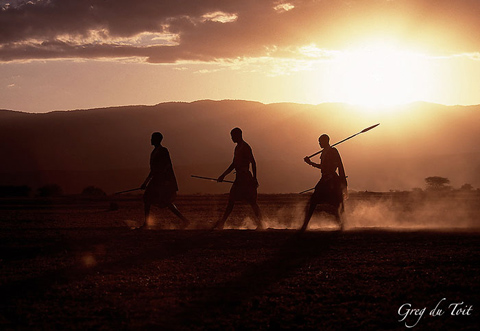
4. You mentioned that being a wildlife photographer is at times exhilarating but most of the time just plain infuriating! Please can you expand on this statement.
Sure - as a wildlife photographer my aim is to capture unique, powerful and striking imagery. In order for this to happen I require great light, a good background, a good subject, and an interesting element of behavior.
What’s more, is that I need those elements to collide in a single fraction of a second. Now, if you think about the bush and how random and unpredictable it is, what do you think the odds are of finding all those elements in a single location and in a single second? It is almost impossible!
For 99% of the time, I feel like wildlife photography is a big stick that keeps beating me. Sometimes I have great light but no subject or I have a subject but no light or I have both, and then a stick is in the way, or you have all three and the animal goes to sleep (ok, you get the point).
Yes, it is plain infuriating to try capture a unique wildlife image and after a while, wildlife photography becomes a mental game of note. You have to stay positive and you have to keep trying!
I have seen many a wildlife photographer become disillusioned and they usually blame their equipment or the driver or something else, instead of facing up to the fact that a great wildlife shot is a rare entity! Ironically this is part of what makes a great photo such a special thing!
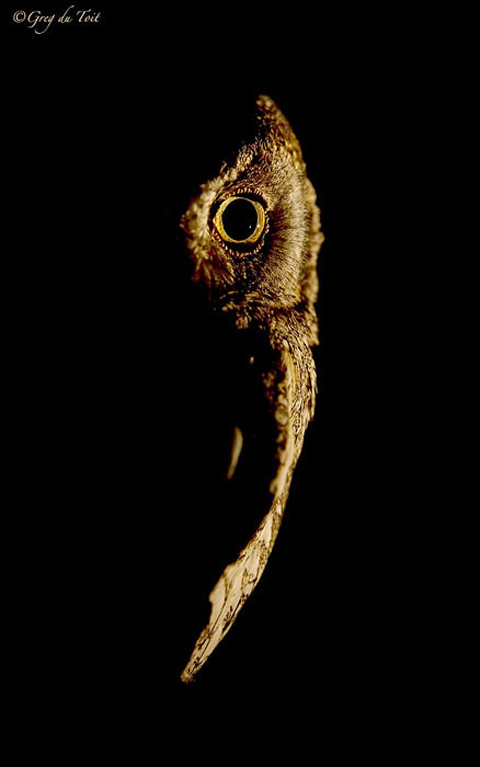
5. Do you use fill-flash for any of your photographs? I ask this question as flash seems to be the skill many wildlife photographers cannot get right.
I use my flash extensively. I agree that this seems to be an issue for a lot of photographers, and as a result of this, I have designed a ‘Flash for Dummies’ module which I teach on photography workshops. TTL flash is actually very easy to use and if used efficiently, it can enhance a photographer’s imagery.
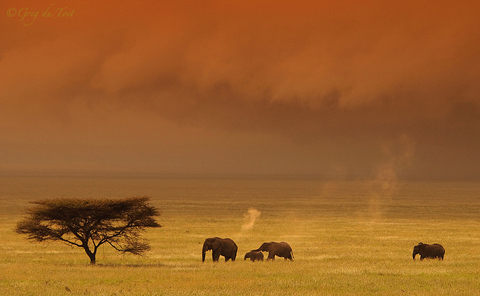
6. Most photographers are married yet we never hear about their spouses. You and Claire, however, work together in running your business. Claire obviously also loves the wilderness but is she also a photographer?
Claire is thankfully not a photographer. I say ‘thankfully’ because my entire life is consumed by photography and Claire adds a healthy and much needed balance. I simply could not do what I do without my wife. She is truly a gift from God!
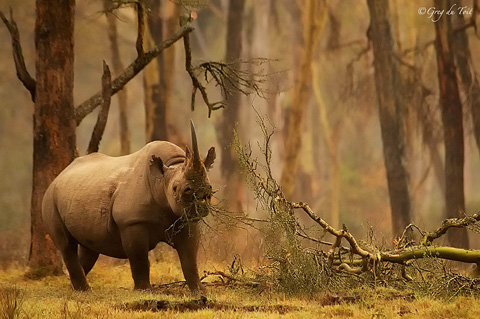
7. You seem to have a soft spot for rhinos, with your shot of a black rhino near Lake Nakuru winning the Gerald Durrell Endangered Wildlife award in the 2010 Wildlife Photographer of the Year competition. When you first spotted the black rhino you were so excited that you forgot about your camera and lens that was lying on a beanbag on your window and the whole lot came tumbling down into the dirt when you pulled off. Most photographers get excited when they see a rare animal or a perfect photo opportunity so what is the lesson here?
Shucks, that was one of the worst days of my life.
I only had one camera body, one lens and one flash and they all bit the dust on the first day of my trip. I felt like crying!
I think it is great if a photographer gets excited about an animal or opportunity and I will start to worry when the day comes that I no longer get excited.
Having said this though, it is important that one remains composed (no pun intended), as your health and equipment are essential in you achieving your long term photographic aspirations. I have even on occasion closed my eyes and taken deep breathes to calm myself down. My wife also regularly tells me to take it easy!
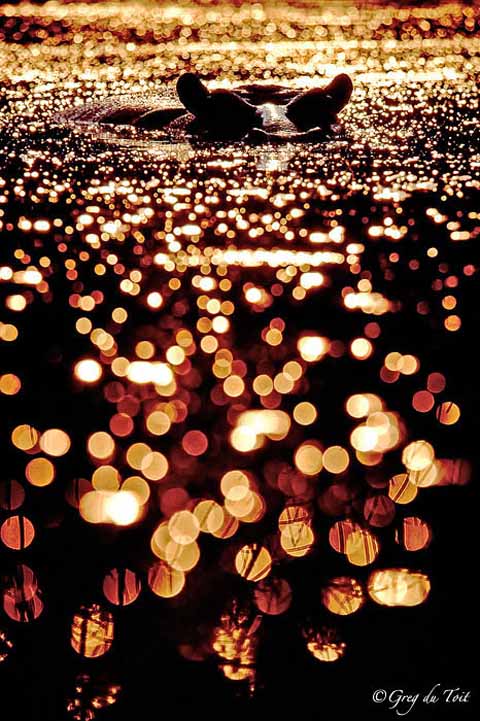
8. You specialize in photographic workshops in Southern and East Africa - Please give us an idea of a typical day on one of your workshops...
Yes, photographic workshops have become a specialty of mine as I lived in East Africa for 4 years as well as in lowveld bush for a number of years. I also enjoy sharing and teaching!
A typical day will involve an early morning game drive (getting out before the sun), and then once back in camp, we have a two hour theoretical session. I will present a module or two each day on practically relevant photographic topics; I also review and give feedback on other’s images so that they can learn from their own images and grow in their own style. There is of course plenty of time for questions!
Then, we hit the afternoon drive and night drive where I again help with settings and creative input; then dinner and bed. The best thing, is that we do it all again the next day! I specialize in helping photographers create unique, creative and powerful imagery. I am not a ‘bird on a stick’ or a boring ‘front lit type’ photographer (tongue in cheek comment, sorry).
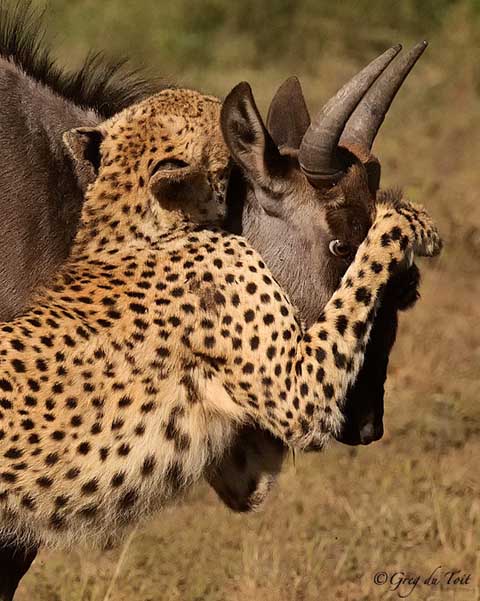
9. I see you also do workshops in Namibia. Do you visit Etosha and if so, what are some of your favorite places for photographing animals there?
I enjoy Etosha but I have not spent enough time there to answer this question. I like to really get to know a location and to figure it out and I have not spent enough time in Namibia! I actually do not run workshops there yet!
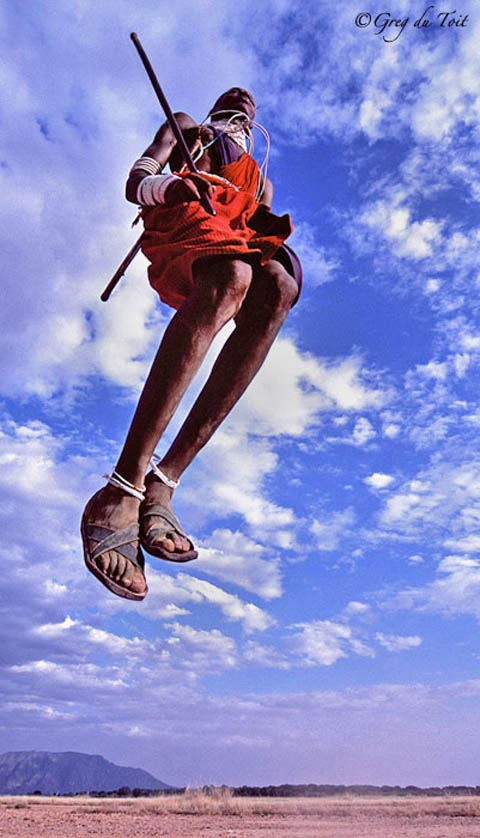
10. You have many excellent photographs but the one that seems to have received the most attention is the eye-level shot of lions drinking at a waterhole in Kenya. It took you months to get the shot and you progressed from a hole-in-the ground hide to a tent to just sitting in the middle of the waterhole with your head and camera sticking out the water! After this incident you mentioned that "wildlife photography is more about the experience than about getting the shot". How did you arrive at this conclusion’
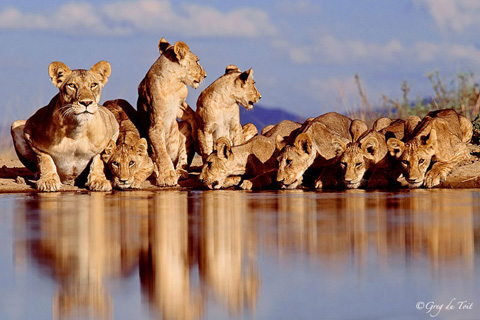
Painfully! Ok, you have struck at the core of my photographic philosophy in this question.
The waterhole project taught me a massive lesson, in that I set out to simply capture images of free ranging lion drinking, right?
Unfortunately, or rather as it turns out FORTUNATELY, the lions took 16 months to come down and drink. During those 16 months of waiting I experienced the most amazing things.
I watched Lanner Falcons swoop down and catch drinking doves right in front of my nose! I even watched a falcon drop a dove and then saw a Khori Bustard walk over and swallow it - whole! I watched a pair of Egyptian Geese mate, build a nest and incubate eggs. I then watched the young goslings swim around me too close to photograph; I watched them grow and once fully-grown, chased away by the parents. I saw insects in the water that I never knew existed and I photographed creatures that I never knew existed in that ecosystem.
By the time the lions came down to drink, I had gone through a conversion in that I had realized that wildlife photography might be about the pursuit of a frame, but it is REALLY about the journey.
I think so many photographers miss this point and on my safaris I make sure to remind myself, and my clients, of just how wonderful nature is! I believe that an appreciation for nature, makes me a better photographer!
11. Some photographers love processing their images while others see it as a laborious chore. How do you feel about Photoshop or any of the other digital darkroom programs out there?
Ok, I am a bush boy so sitting in front of a computer was very foreign to me. As a result, I only process images once a year!
Yes, you heard me correct!
When I do, I also only process the images that I think are striking. I have back up hard drives full of unprocessed images! I have no problem with post processing but I feel every photographer needs to decide why or what he photographs for?
I have chosen to ‘document nature in an artistic way’ and therefore, I do not manipulate my images but rather just enhance them in Photoshop.
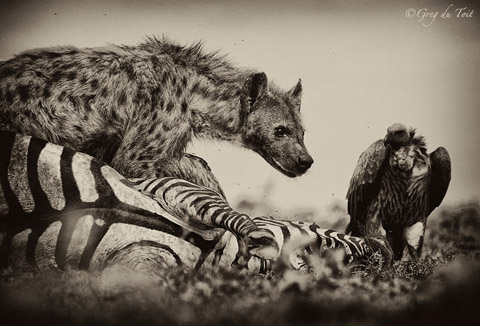
12. When I read the testimonials from some of your clients the two things that jumped out at me were that they were impressed with your knowledge of animals plus your humility. Not many people in the world are humble, so where did your humility come from - especially now that you are recognized as one of the top wildlife photographers in the world?
This might sound strange but wildlife photography keeps me humble! It is so difficult to try and control elements that are essentially out of our control, like wild animals and light, and this keeps me very humble.
I am also humble because I believe I have been exceptionally blessed to have experienced and seen what I have. To put it differently, I have not had a grand master plan, that I have executed to perfection, and therefore can feel like I am a great photographer.
No, I have been blessed and just followed my life’s path and am grateful for how things have turned out.
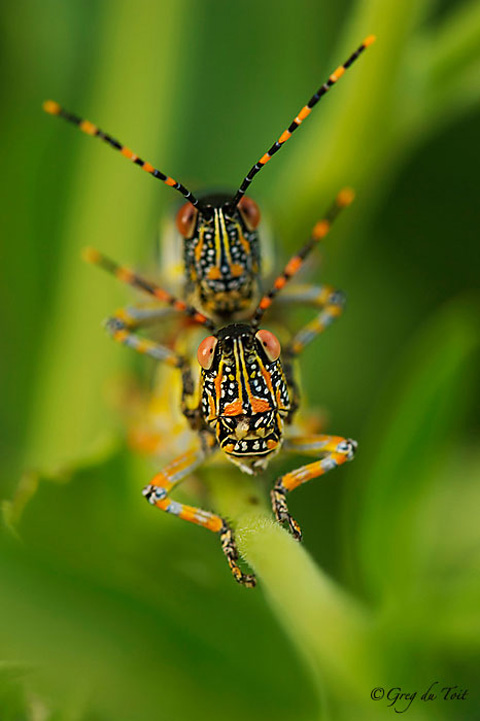
13. You mentioned that it is a privilege to be a professional wildlife photographer and that your profession has brought you to a place where the Creator’s creativity has ignited your own creativity and your camera has become an extension of your soul. God has blessed you and now your photographs are being looked at worldwide - how do you feel knowing that your life and work brings glory to God?
Yes, I said that in an interview with the Baptist Times. Just too back up for a second, I believe we all need to make a choice regarding the origin of the very things that we photograph.
I have chosen to not accept that life in all its wondrous diversity is a result of random mutation. Once you believe in a Creator, it changes the way you see the world and your life and yes, your photography.
I believe that a great photograph of anything is a really ‘good thing’ that helps in some way, to make the world a better place. Taking this a step further, I believe that the passion and appreciation that I have for nature was purposefully put in me, and that my photography is a way to reflect this passion but also, a way to reflect the handiwork of an awesome Creator. It feels wonderful to live and photograph with this purpose!
Hey, while we on this awkward spiritual/religious question (where no one ever goes), I have to say that I believe that this Creator made a way for us to know him through Jesus Christ. I also want to add that this is a faith, and faith is defined as ‘being sure of what we do not know and certain of what we cannot see.’
Since this is my interview (wry smile) and you did ask, please can I take this opportunity to say in black and white, that I have accepted Jesus Christ as my personal Lord and Savior (way back in 1988 in fact), and I believe Him to be the only way too God according to His own teachings.
Also, let me add that the single greatest commandment in the bible, after being commanded to love God, is to love your neighbor as yourself, and I reckon that is pretty cool!
Strangely, God is no longer and almost never credited on safari for being the Creator of wildlife and I have had to endure endless referrals to evolution, so thank you so much for the opportunity to express my beliefs in this interview. I hope I have not just lost half my safari business :-)
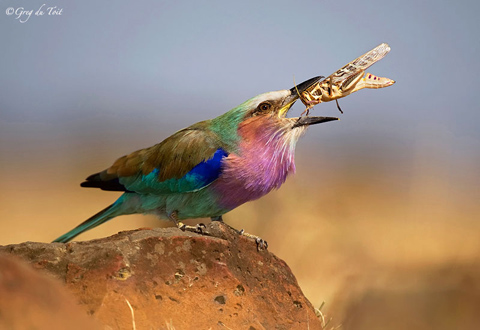
14. Any final words of advice or encouragement to someone starting out with or wanting to improve their wildlife photography?
Sure, my advice is to enjoy it! If you enjoy it, you will stick at it for longer and you will become a better photographer.
You do this by photographing the things that you love and that make you happy. You also do this by NOT falling into the equipment trap whereby you get all frustrated because you do not have enough money. Buy the best equipment you can afford and do what you can with what you got! Just get out there and enjoy yourself!
Also, if you cannot afford to get to spectacular locations, simply find a place anywhere and spend time there, and if you spend enough time anywhere in nature, you will be rewarded one way or another!
Also remember that photography is subjective and that ultimately it is your opinion of your work that counts; so first learn to critic yourself, before seeking approval from others, regardless of who they might be. Also, remember that your imagery is probably not as good as you think it is and that it is more about the journey than the photograph and that this applies to us all!
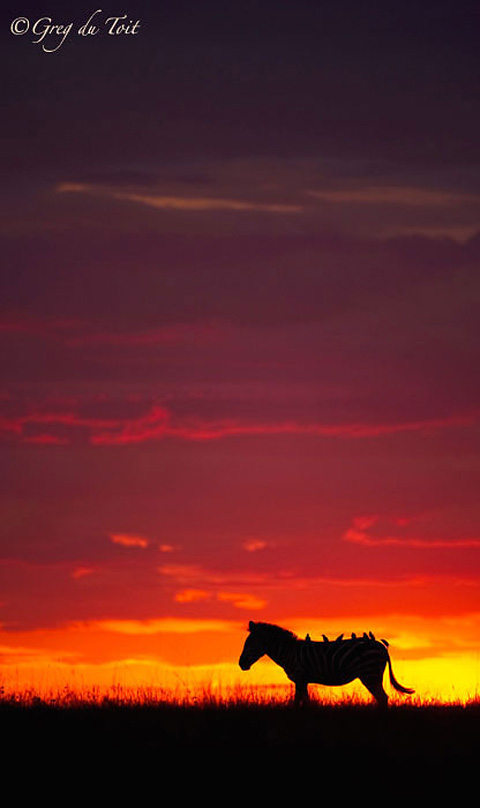
About Greg du Toit ...
Greg du Toit is a professionalAfrican wildlife photographer and 8th generation African. Born in South Africa in 1977, he has lived and worked in four different African countries. From a young age, he has engaged the wilds of Africa, and there was never any doubt as to what he would do with his life. It was therefore no surprise that after completing his tertiary education in Nature Conservation, he went to live permanently in the African bush.
African wildlife is his specialty and his focus lies in fine art wildlife photography whereby his photographic works are raw and timeless, conveying intimate interactions with the natural world. This intimacy, as a signature theme, has brought him international acclaim, whereby he was recently invited to exhibit his work in a solo exhibition hosted by National Geographic in London. The exhibit titled 'Africa' sold out in its first month before being extended. The gallery is located on the 1st floor of the National Geographic Store in Regent Street and said to host an unprecedented 40 000 visitors per day.
Greg also regularly receives honors in the most prestigious wildlife competitions in the world. His image titled 'Crossing Frenzy' toured the world as part of the 2009 BBC Wildlife Photographer of the Year exhibition, while another image titled 'Maasai Enigma' featured in a special collectors' edition of the Nature's Best publication, run in association with the Smithsonian Museum, Washington D.C.
His image titled 'Black Rhino Forest' received a Gerald Durrell Endangered Wildlife award in the 2010 BBC Wildlife Photographer of the Year. He is also honored to have co-judged a photographic competition hosted by Africa Geographic magazine and alongside fellow judges Peter and Beverly Pickford.
In 2013 Greg was crowned 'Wildlife Photographer of the Year' with his winning entry called Elephant Essence...
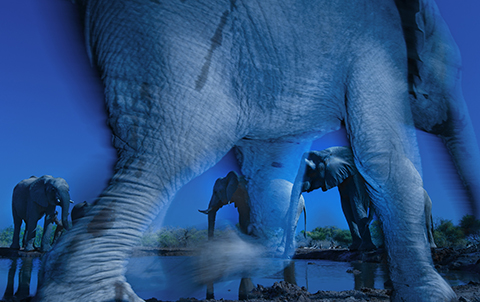
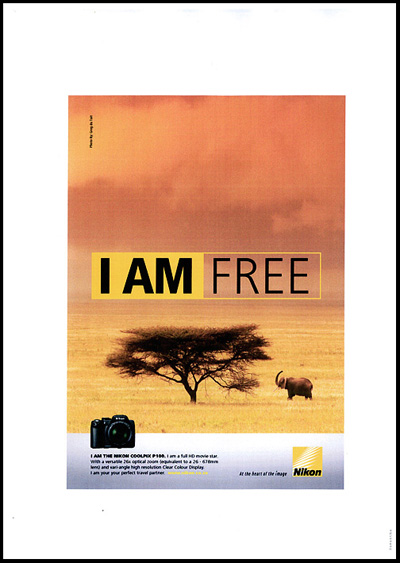
When Nikon launched their 'I AM' campaign in 2010, they selected Greg's images to represent their brand. These images have featured in various advertisements and publications...
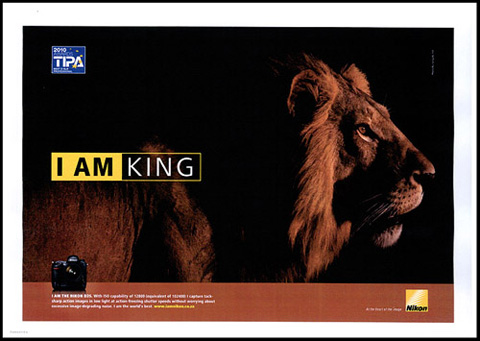
Greg is currently focusing his attention on offering private photographic safaris and photographic workshops. In addition to running his own personalized safaris, he is also commissioned by other safari operators to conduct and host photographic workshops. National Geographic Travel are one such client. After living permanently in the African bush and on remote locations, for over a decade, he is now based in the city of Pretoria, South Africa. From this base he is available for commissions and has most recently been commissioned by the National Geographic Channel.
To see more of Greg's superb images or to learn more about his photographic safaris please visit his website Greg du Toit.com
All images on this page ©Copyright - Greg du Toit Safaris & Photographic.
Return from Interview with Greg du Toit to Interviews page
To make a safari rental booking in South Africa, Botswana or Namibia click here
"It's 764 pages of the most amazing information. It consists of, well, everything really. Photography info...area info...hidden roads..special places....what they have seen almost road by road. Where to stay just outside the Park...camp information. It takes quite a lot to impress me but I really feel that this book, which was 7 years in the making, is exceptional." - Janey Coetzee, South Africa
"Your time and money are valuable and the information in this Etosha eBook will help you save both."
-Don Stilton, Florida, USA
"As a photographer and someone who has visited and taken photographs in the Pilanesberg National Park, I can safely say that with the knowledge gained from this eBook, your experiences and photographs will be much more memorable."
-Alastair Stewart, BC, Canada
"This eBook will be extremely useful for a wide spectrum of photography enthusiasts, from beginners to even professional photographers."
- Tobie Oosthuizen, Pretoria, South Africa
Photo Safaris on a Private Vehicle - just You, the guide & the animals!
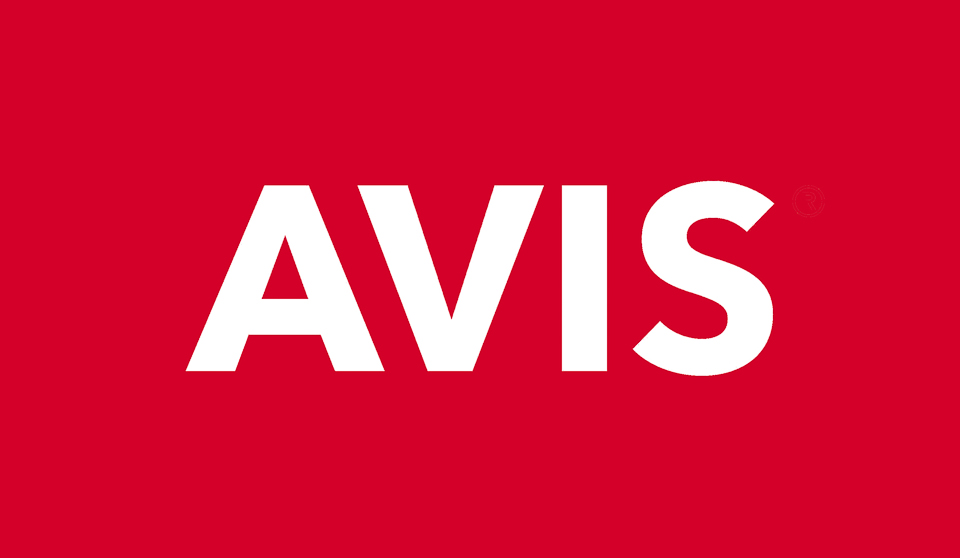
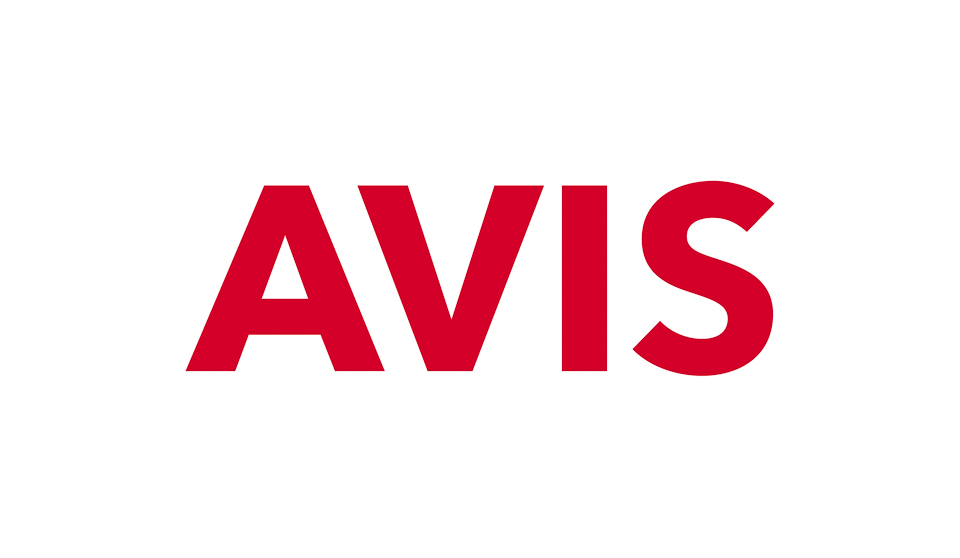





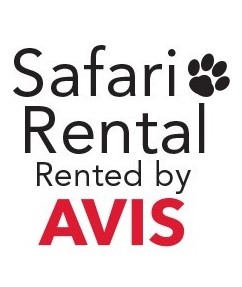
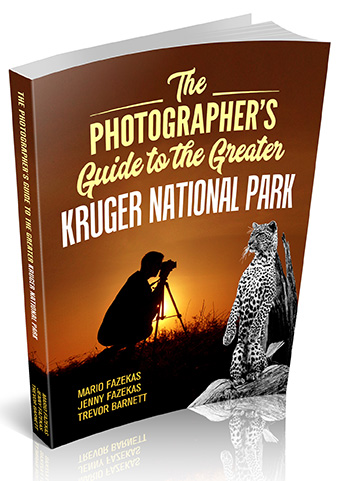
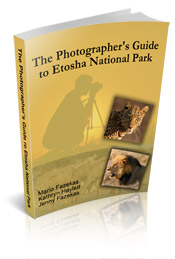
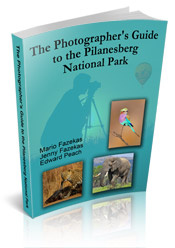
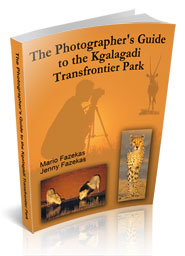
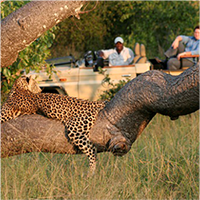
New! Comments
Have your say about what you just read! Please leave us a comment in the box below.